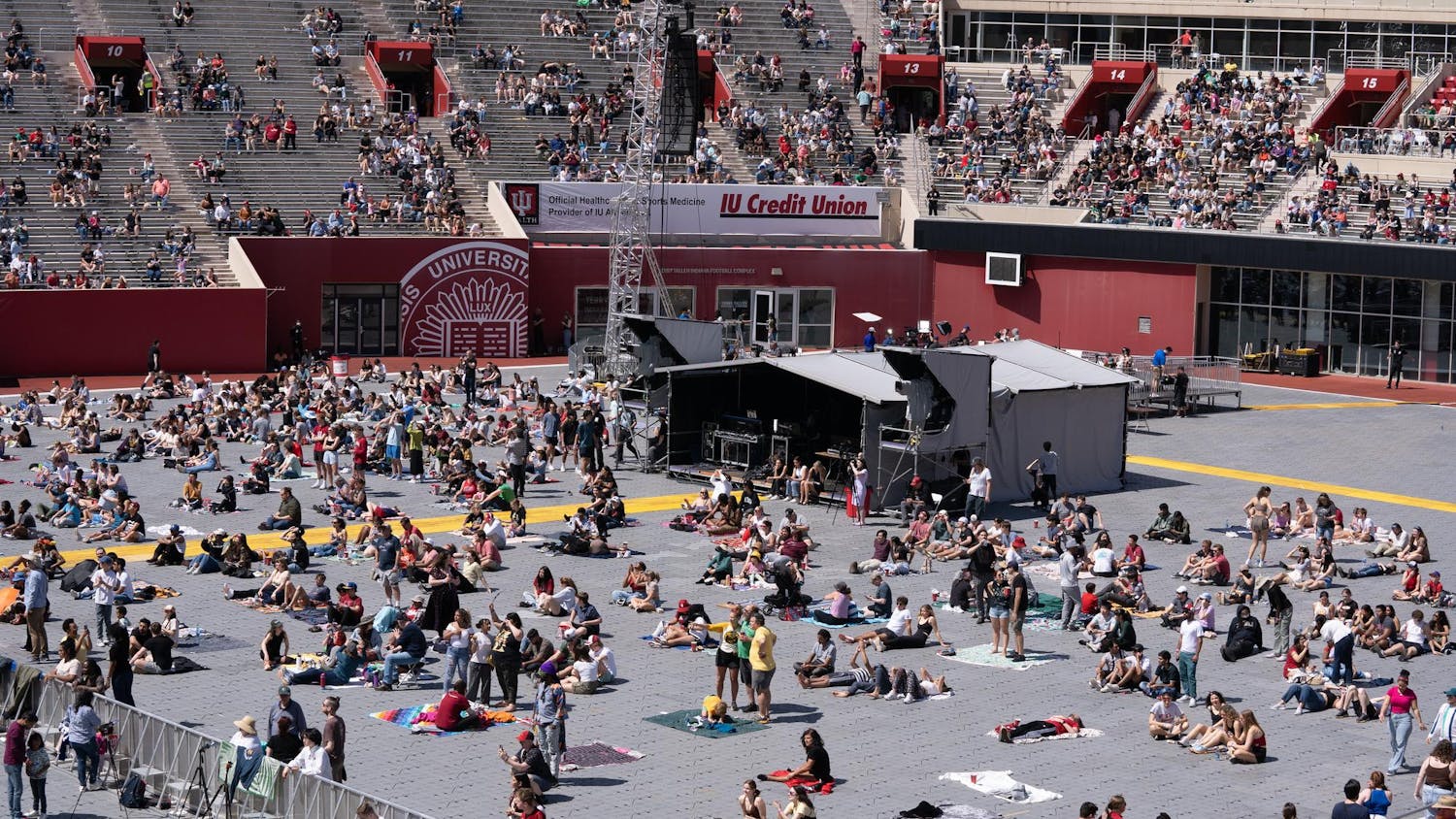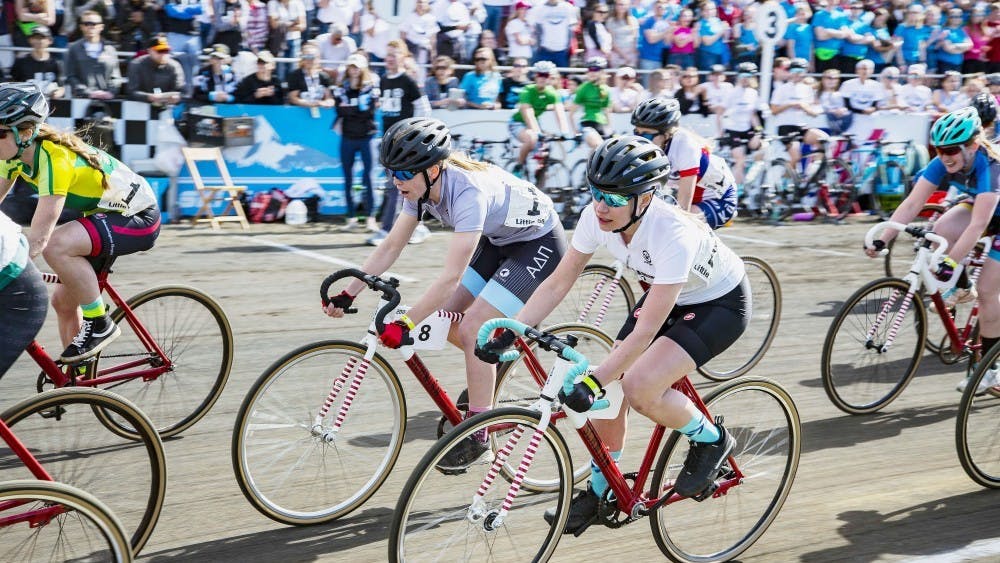Kevin Coons said as a man experiencing homelessness, it’s getting harder and harder to find a place he’s allowed to be.
He doesn’t sleep, he said, because there’s nowhere to go.
Public places are implementing more and more restrictions that push him out, Coons said.
This past week, the Monroe County Board of Commissioners met to discuss the implementation of large, 2-foot-tall and 6-foot-wide limestone planters in the window alcoves of the County Courthouse.
It would be done to discourage camping and to heighten security in the area.
The courthouse alcoves have provided people without homes shelter when it rains or otherwise, Coons said.
“The freedom to move back and forth — that’s something that’s tantamount in our society,” local civil rights attorney Michael Gastineau said. “I think it’s being eroded for some individuals.”
After the closing of the Interfaith Winter Shelter April 1, more than 50 people were left on the streets with nowhere to sleep.
Although there are other shelters in town, space is limited, and not everyone fits eligibility requirements.
There have been problems with misuse of the lawn, Commissioner’s administrator Angela Purdie said.
Vomit, feces and trash have been found on the grounds in the past.
Purdie said the planters’ purpose is not aesthetic, but to discourage people from loitering, camping and smoking outside the courthouse.
“It only took a couple people to ruin everything for everyone,” Coons said.
Community activists have questioned why the $5,000 that will go to the planters is not going to a shelter or service for those who are homeless.
“We are left in Monroe County with many agencies that are generally private and nonprofit that support and help many of the homeless and the needy, and they are the ones who have the financial appropriations to provide that assistance,” Purdie said.
Open shelters in town require tenants to be sober Monroe County residents with no history of sexual crimes.
“That is the issue,” Purdie said. “There are resources available, but to use those resources you have to meet certain criteria that that agency has established.”
Gina Simmons, a woman experiencing homelessness, said implementing the planters is another way the government is trying to run them out of town.
“If you’re not doing anything bad, why can’t you just stay there?” she said. “All this land and there’s nowhere for us to go.”
The planters are not the only decision that has been made to directly affect the homeless population, Gastineau said.
This past August, the Monroe County Courthouse implemented hours for the lawn, 6 a.m. to 10 p.m. daily.
Additionally, the Monroe County Public Library prohibits sleeping.
The Bloomington Public Transit Corporation is now discussing changing its behavioral code to prohibit sleeping, smelling, loitering and obscene language.
“I think they unfairly target those that experience homelessness and poverty,” Gastineau said. “They always have a legitimate business purpose for it, but I would say they do discriminate because they disproportionately affect those that are homeless.”
Gastineau said he thinks the government has its own definition of public.
“These measures and these sort of policies are basically a way to discourage and detour certain individuals from using that property without having an explicit law to that effect,” he said. “I think governments have manipulated the concept of private property to achieve a desired end.”
The Monroe County Board of Commissioners will have another meeting at 9 a.m. June 13 in the courthouse, and citizens will be allowed time for public comment.
The BPTC will have another meeting at 5:30 p.m. June 17, located in the BPTC Conference Room on 130 W. Grimes Lane, to further discuss the behavioral code.
The meeting is also open to the public.
Courthouse deters camping with planters, raises questions
Get stories like this in your inbox
Subscribe





